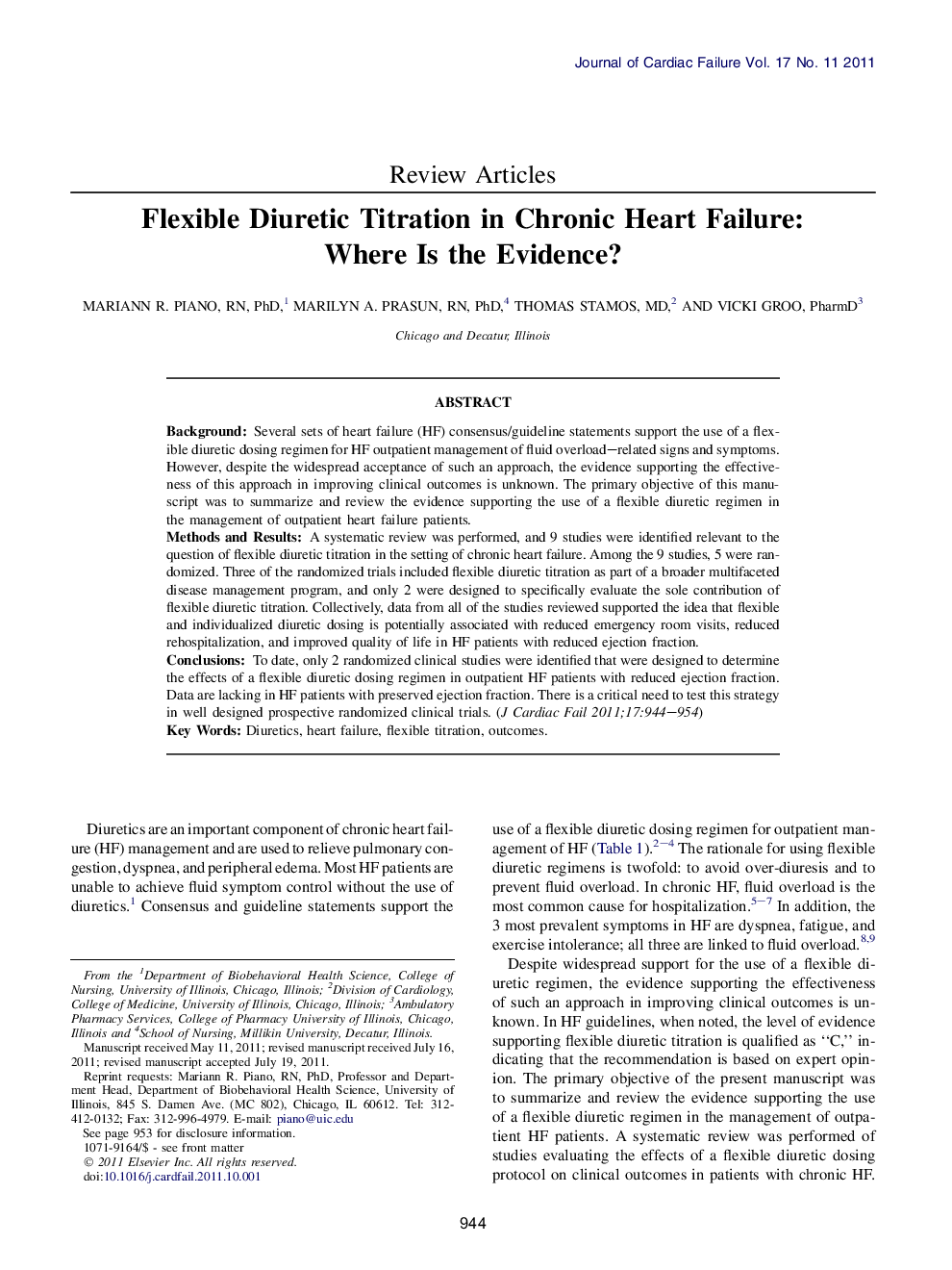| Article ID | Journal | Published Year | Pages | File Type |
|---|---|---|---|---|
| 2960669 | Journal of Cardiac Failure | 2011 | 11 Pages |
BackgroundSeveral sets of heart failure (HF) consensus/guideline statements support the use of a flexible diuretic dosing regimen for HF outpatient management of fluid overload–related signs and symptoms. However, despite the widespread acceptance of such an approach, the evidence supporting the effectiveness of this approach in improving clinical outcomes is unknown. The primary objective of this manuscript was to summarize and review the evidence supporting the use of a flexible diuretic regimen in the management of outpatient heart failure patients.Methods and ResultsA systematic review was performed, and 9 studies were identified relevant to the question of flexible diuretic titration in the setting of chronic heart failure. Among the 9 studies, 5 were randomized. Three of the randomized trials included flexible diuretic titration as part of a broader multifaceted disease management program, and only 2 were designed to specifically evaluate the sole contribution of flexible diuretic titration. Collectively, data from all of the studies reviewed supported the idea that flexible and individualized diuretic dosing is potentially associated with reduced emergency room visits, reduced rehospitalization, and improved quality of life in HF patients with reduced ejection fraction.ConclusionsTo date, only 2 randomized clinical studies were identified that were designed to determine the effects of a flexible diuretic dosing regimen in outpatient HF patients with reduced ejection fraction. Data are lacking in HF patients with preserved ejection fraction. There is a critical need to test this strategy in well designed prospective randomized clinical trials.
